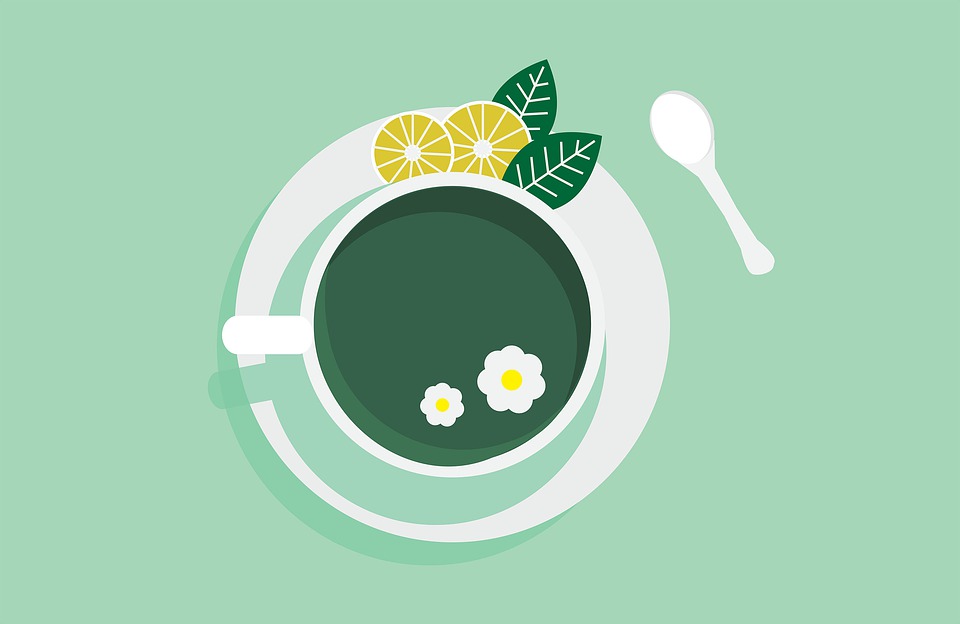Green tea has a long history in China, where it has been enjoyed as a richly flavored beverage and used for medicinal purposes for thousands of years. Today, green tea has gained popularity and is consumed worldwide thanks to its many acclaimed health benefits.
Green tea is made from the leaves of the Camellia sinensis plant. Though all varieties of tea come from the same plant, green tea is considered the healthiest because of how it is processed.
This article covers the known and potential health benefits of green tea, possible side effects, and what to look for when buying green tea for consumption or use as a dietary supplement.
What is Green Tea?
Green tea is made from the leaves of the camellia sinensis tea plant. Native to China and India, this plant has been cultivated for hundreds, if not thousands, of years. Other types of “true” tea, including black tea, white tea, oolong tea, pu-erh tea, and purple tea, are all made from the same plant.
Like other types of tea, green tea contains a moderate amount of caffeine. Green tea can be consumed on its own or as an ingredient in flavored tea blends. While green tea is made from the same tea plant as other types of tea, there are a few key differences between green tea and other types of tea.
After green tea leaves are harvested, the leaves are quickly steamed or pan-fired in order to halt the oxidation process. This preserves the tea leaves’ light green color, and is one of the reasons why green tea is especially high in the beneficial properties present in the tea plant.
READ MORE: Caffeine Health Benefits
Japanese vs. Chinese Green Tea
Green tea is primarily produced in either China or Japan. While teas produced in these countries are similar in some ways, they have a few distinct characteristics that set them apart. Most notably, Chinese green teas are usually pan-fired to halt the oxidation process, while Japanese green teas are typically steamed.
As a result of these different processing methods, Chinese green teas tend to be mellower and more floral, while Japanese green teas are richer and more vegetal. Japanese green tea is also sometimes further processed into matcha, which is a finely ground powder produced from shaded green tea leaves.
Flavored Green Tea vs. Classic Green Tea
Green tea comes in a variety of classic types, from bold Gunpowder to mellow Kukicha and everything in between. These green teas contain just one ingredient: high-quality tea leaves harvested from the camellia sinensis plant.
But if you don’t like the taste of green tea on its own, or just want to try something different, there are plenty of flavored blends to choose from as well. Flavored green teas contain green tea as a base, which is then blended with different herbs, spices, fruits, and flowers depending on the tea.
Some of our most popular flavored green teas include Moroccan Mint, which is a blend of Gunpowder green tea flavored with spearmint; Vanilla Bean, which is a green tea flavored with vanilla, and Jasmine Yin Cloud, with is a Chinese green tea scented with delicate jasmine blossoms. Flavored green teas contain just as many health benefits as classic green teas, so feel free to pick whichever one strikes your fancy.
Green Tea vs. Matcha
While green tea and matcha share many similarities, there are some important differences between the two types of tea. Essentially, green tea is a type of full-leaf tea that is infused in hot water, while matcha is made from green tea leaves that are stone-ground into a fine powder and prepared by whisking together with hot water.
So which one is better for you? When you drink a cup of tea, you’re drinking an infusion of tea leaves in water, while when you drink a bowl of matcha, you’re actually consuming the whole tea leaf. Because matcha is so concentrated, it will contain even more of the beneficial properties present in green tea, along with a stronger flavor.
Matcha is also typically much higher in caffeine than a typical green tea, and can be somewhat of an acquired taste until your palate adjusts to it. Whether you go for a cup of green tea or a bowl of matcha is largely a matter of personal preference – they’re both full of beneficial properties that can have a positive impact on your health.
READ MORE: 10 Match Tea Benefits
Green Tea Benefits
If you’re trying to improve your health, you can’t go wrong with a cup of green tea. Here are a few of the many health benefits of green tea:
1. High in EGCG
Green tea is especially high in a unique component known as EGCG, or epigallocatechin gallate. EGCG is a specific type of catechin that has been studied for its beneficial effects. Polyphenol compounds from green tea possess anticancer activities. While other types of tea contain smaller amounts of EGCG, green tea is especially high in it.
2. Boosts Energy
Green tea contains a moderate amount of caffeine, which can give you a boost of energy to help you power through the day. In general, green tea contains about half as much caffeine as black tea and about a quarter as much as a cup of coffee. However, some green teas, particularly shade-grown Japanese teas like Gyokuro and Kabusecha, may be higher in caffeine.
3. Reduces Stress
Green tea also contains a property known as l-theanine, a unique component that can help to reduce stress and anxiety and promote rest and relaxation. More research is certainly needed, in any case. A cup of green tea can help you to calm down if you’re feeling anxious, and help you relax and unwind. Just be sure to avoid green tea in the evening if you’re sensitive to caffeine.
4. Improves Cognitive Function
The caffeine and l-theanine present in green tea work together to help boost your brainpower and improve cognitive function. The combination of L-theanine and caffeine can improve cognition and brain function. This has led many experts to believe that L-theanine is worth continued study for its potential to prevent memory decline. Caffeine energizes while l-theanine calms, and when combined together they can help you to focus on cognitively demanding tasks, study, and more.
Purium’s Revive-It-All contains two very important ingredients that have been proven to help reverse memory loss and increase energy and vigor: Acetyl L-Carnitine and Alpha Lipoic Acid.
5. Good for Oral Health
Trying to protect your pearly whites? Green tea is great for your teeth and overall oral health. Green tea is rich in flavonoids that work to reduce inflammation, maintain healthy gums, and limit the growth of bacteria in your mouth.
6. Boosts Metabolism
Green tea has been shown to help boost your metabolism and help you maintain a healthy weight. According to a 2013 study, drinking four cups of tea a day helped participants to lose weight. If you’re looking to get into better shape, green tea is a great addition to other aspects of a healthy lifestyle like nutritious foods and exercise.
7. High in Antioxidants
Like other types of tea, green tea is extremely high in antioxidants. Antioxidants help to reduce harmful free radicals within the body and prevent degenerative diseases. Its high antioxidant content is one of the main reasons why green tea is considered so healthy!
8. Good for Heart Health
Drinking green tea regularly is also good for your heart. Green tea can help to lower your risk of cardiovascular disease, and can reduce the risk of heart attacks and strokes. This is because of the beneficial flavonoids present in green tea.
9. Improves Longevity
Drinking green tea may help to increase longevity. A 2020 study in China found that habitual tea drinkers live longer than non-tea drinkers. While this may be due to the healthful properties of green tea, scientists suggest that other factors may also play a role in extending longevity, such as being able to take the time out of your day to relax, unwind, and brew up a cup.
10. Good for Your Skin
Consuming green tea has benefits for your skin, thanks to the presence of EGCG. Green tea has been shown to protect your skin against harmful UV rays. Green tea can also be applied topically, and is a popular ingredient in a variety of skincare products.
11. Boosts Your Immune System
Green tea contains beneficial polyphenols known as catechins that can help to boost your immune system and ward off illnesses like colds and the flu. Green tea also has antimicrobial properties that can help to prevent infection.
12. Reduces Inflammation
Studies have shown that green tea contains anti-inflammatory properties that can help to soothe pain and reduce inflammation. Like many of the other health benefits of green tea, this is again due to the high levels of catechins in green tea.
13. Good for Digestion
Green tea is also good for your digestion. Drinking green tea can help to prevent gastrointestinal disorders thanks to its abundant polyphenols. Green tea can also help you to stay hydrated, and a soothing cup of green tea can help you to digest heavy meals and cleanse your palate.
What Are the Side Effects of Green Tea?
It is okay to drink green tea every day. In fact, drinking up to eight cups of green tea per day is considered safe. Drinking more than the recommended amount may cause side effects associated with too much caffeine, such as:
- Jitteriness/restlessness
- Insomnia
- Headache
- Dizziness
- Rapid heart rate
- Dehydration
- Frequent urination
Talk to your healthcare provider before consuming green tea or green tea extracts if you:
- Are pregnant. Pregnant people can safely consume up to six cups of green tea daily. However, green tea may increase the risk of congenital disorders in infants whose pregnant parent has a folic acid deficiency.
- Have liver disease. There are some reports that green tea can cause liver injury. Signs of liver injury can include abdominal pain, dark-colored urine, and jaundice.
- Take beta-blockers. At high doses, green tea may reduce blood levels and inhibit the effectiveness of a prescription drug called Corgard (nadolol)—a beta-blocker prescribed to treat high blood pressure and some heart diseases.
If you are breastfeeding, green tea is safe for consumption, but remember that caffeine passes through breast milk and can affect your baby.
Selection, Preparation, and Storage
Select a high-quality tea from a reputable company. Look for information on the product label about when and how the tea was processed and packaged. Visiting a tea shop and speaking to the staff is an excellent place to start if you’re unsure which type would be best for you.
Green tea is available in bags, sachets, loose-leaf, or a powder form known as matcha. Tea bags and sachets come with a standard amount of leaves, and loose-leaf is typically sold in tin canisters or resealable sacks.
Some people may purchase green tea in bags or sachets for ease of use. You can choose how many leaves you use with loose-leaf green tea based on your flavor preferences.
Preparation
You can enjoy green tea as an iced or hot beverage. It is typically prepared by brewing the tea in hot water at 90 degrees Celsius or 194 degrees Fahrenheit (just below boiling).
You can steep the tea for as long as you’d like; the longer you steep it, the stronger the flavor. For a lighter-tasting tea, two minutes should be sufficient. For a more robust flavor, steep it for three to five minutes.
Adding milk, sugar, or honey may enhance the flavor of green tea; however, these additions may alter the tea’s nutritional content. Some studies suggest that adding milk to green tea may reduce its antioxidant benefits.
Storage
When storing green tea, you’ll want to avoid air, heat, light, moisture, and odor. Store your tea in a sealed, airtight container in a dark cupboard at room temperature. Some research suggests that storing tea at a low temperature may help prolong its shelf life and protect it from oxidation.
Green tea extracts are available in capsule, liquid, and powder forms. Keep the following in mind when shopping for a green tea extract supplement:
- Carefully read the ingredients label on the product packaging, which should list all ingredients, amounts of each, and nutrients in the supplement.
- Check the label to look for a Certificate of Analysis (COA), indicating that an accredited third-party lab has tested it, it does not contain harmful ingredients, and the nutrition label is accurate.
Summary
Green tea provides several science-backed health benefits. The antioxidants in green tea can help protect your heart, improve brain health, promote weight loss, regulate blood sugar, and protect against certain types of cancer. Green tea is generally safe in moderation, and most adverse side effects are related to its caffeine content.
Pregnant or breastfeeding people, people with liver disease, or those taking beta-blockers should consult their healthcare provider before adding green tea to their daily routines. The benefits of green tea can impact various areas of your health.
Though regularly consuming brewed green tea or green tea supplements can contribute to your health, remember that green tea alone does not reduce your risks. Maintaining healthy lifestyle behaviors is essential to improving your overall health.









